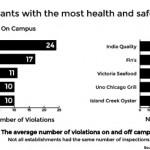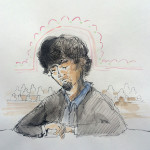
The parents of Anthony Barksdale II, a freshman in Boston University’s College of Engineering who died on March 2, 2013 at an off-campus party allegedly hosted by the Sigma Alpha Mu fraternity, filed a complaint seeking wrongful death charges and financial compensation.
The complaint, filed on April 17 with the U.S. District Court of Massachusetts, names four BU graduates from the class of 2013 and 2014 and the fraternity’s national organization as defendants.
Former SAM President Alex Cuetara, former Vice President Jacob Beck, former Programming Chair Jonathon Scarbeau and fraternity bother Edmond Gamelin III resided at the Allston apartment where Barksdale obtained alcohol, the complaint stated. Upon arrival at the party, Barksdale was given a 1.75-liter bottle of vodka and was told to drink it himself or share it, the complaint stated.
“The individual defendants and the Beta Upsilon Chapter delayed calling police and emergency services when they first became aware that Tony was extremely intoxicated,” the complaint stated. “The delay in seeking treatment also caused Tony’s death. In all of these acts, the individual defendants and the Beta Upsilon Chapter acted as the agents for the national fraternity.”
Within days of Barksdale’s death, university officials suspended the fraternity, The Daily Free Press reported on March 4, 2013. The SAM national organization also suspended the chapter.
“At some point between being taken outside ‘for air’ and losing consciousness, Tony was likely aware of his impending death,” the complaint stated.
Andru Volinsky, an attorney for the Barksdales based in Manchester, New Hampshire, declined to comment due to the ongoing nature of the case.
BU spokesman Colin Riley also declined to comment.
While the national fraternity does not tolerate underage drinking, there is still a “culture” of alcohol consumption “as a means of signifying and achieving acceptance,” that contributed to Barksdale’s death, the complaint stated.
“The national fraternity insufficiently enforces its written policies against underage drinking by failing to engage in thorough, proactive and effective means to make said policies meaningful and protective of young fraternity recruits,” the complaint stated.
Representatives from the national SAM organization did not respond to multiple requests for comment.
Members of BU Greek life participated in the first-ever mandatory alcohol training seven months after Barksdale’s death, the FreeP reported on Oct. 23, 2013.
Paul Gugliuzza, a professor at the BU School of Law, said wrongful death actions are typical civil proceedings.
“It’s hard to say in the abstract how these cases typically come out. It really turns on the specific acts of a defendant in any given case,” he wrote in an email. “If the defendants acted in ways that created some unreasonably dangerous condition, they may be held liable, but the ultimate question of whether the defendants acted wrongfully would be decided by a jury.”
Roger Abrams, a professor at the Northeastern University School of Law said filing the complaint in federal court rather than Massachusetts court isn’t of great significance.
“These cases are usually tried in the state court, but this might be the case [of being tried in federal court] because the parents may be from out of state,” he said. “It’s called jury diversity, and it’s to try suing parties from other states if it’s big enough, which in this case it may be if it lead to the death of the student.”
John Goldberg, a professor at Harvard Law School, said there are several paths the defendants can take to prove they did not act negligently.
“The defendants in this case will attempt to get this lawsuit thrown out of court on the ground that the allegations of wrongdoing are false (i.e., they were not careless) or on the ground that it was not their responsibility to look after the well-being of the decedent,” he wrote in an email. “The frat might argue, separately, that it is not responsible for any of the actions undertaken by the individuals.”
J.D. Capelouto contributed to the reporting of this article.
Vice Chairman and archives keeper for The Daily Free Press Board of Directors. Former news editor. I like data, politics, and higher education, but will write about anything.




